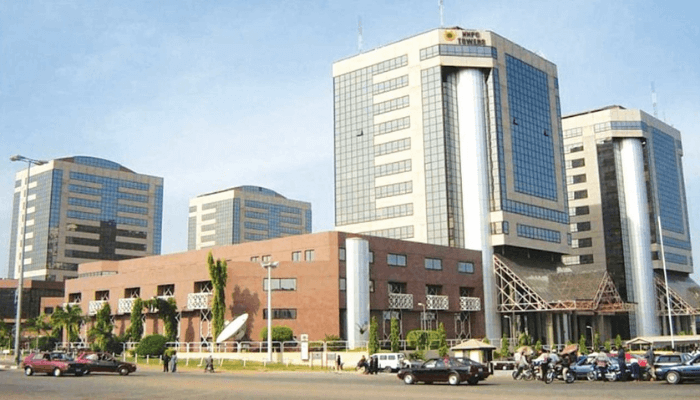The Nigerian National Petroleum Company (NNPC), Nigeria’s major FX earner, has come under scrutiny for the shroud of secrecy of its financial results as it struggles to shake off the perception that it lacks transparency.
The state-owned company was greeted with a round of cheers when it announced the 2020 audited annual report in August 2021, declaring it was its first profit-making period in 44 years.
Then exactly a year later, in August 2022, the company released its 2021 audited annual report.
There was so much applause for getting two consecutive annual reports from the usually opaque organisation because publishing accurate details of crude oil management in Africa’s biggest economy is critical because the oil and gas sector represents about 65 percent of government revenues.
BusinessDay ‘s findings showed that NNPC also produced and published Monthly Operations and Financial reports during the era of Ibe Kachikwu as group managing director of the NNPC (between 2015 and 2016).
These monthly reports shed light on Nigeria’s crude oil and natural gas production, lifting and utilisation, refinery operations, petroleum product supply and distribution, budget performance and details on oil and gas revenue.
The tradition was sustained under Maikanti Baru who took over from Kachikwu on July 4, 2016, as the national oil company’s group managing director.
Things however changed on January 10, 2024, as the state-owned oil firm ignored previous patterns of releasing details of audited financial statements but instead published a one-page document saying it made a N2.5 trillion profit in 2022.
Stakeholders questioned the development considering the 2022 report was expected to deliver on the first full year that NNPC supposedly operated strictly as a commercial entity, as dictated by the Petroleum Industry Act, signed into law in September 2021.
They said since becoming a commercial venture in 2022, and joining the Extractive Industries Transparency Initiative (EITI), the NNPC has fallen short of the global standard, despite the EITI rule requiring state-owned enterprises (SOEs) to make their audited financial statements, or key financial items, publicly available.
“The NNPC slipped back to its old ways of being the poster boy for opacity despite so much talk about the PIA,” a senior oil executive said.
He added, “It’s difficult to hold them accountable when we don’t know anything about their monthly operations or we don’t know how much oil revenue the country makes monthly”.
Kolawole Oluwadare, a deputy director at the Socio-Economic Rights and Accountability Project (SERAP) said Nigeria’s daily oil production, exportation, and the revenues generated have been mostly shrouded in secrecy.
“The NNPC has a legal responsibility to disclose the details sought. Transparency would increase public confidence that the revenues would benefit Nigerians,” he said.
Last month, SERAP filed a lawsuit against NNPC for failing to disclose details of Nigeria’s daily oil production, exportation, and revenues since the removal of the fuel subsidy in May 2023.
“Lack of accountability in NNPC affects budget funding and the possibilities of constructing roads, schools and hospitals. Without open, transparent data, lawmakers cannot hold the NNPC to account for how it manages the country’s revenue,” Niyi Fagbemle, senior project manager said.
A compilation of the outstanding financial liabilities due to the Federation by Oil and Gas Industry Report by the Nigeria Extractive Industries Transparency Initiative (NEITI) indicated that a total of $13.591mn in revenues was payable to the Federal Inland Revenue Service (FIRS) as of July 31, 2023.
NEITI said over 80 percent of these outstanding financial liabilities are owed by NNPC.
In addition, the NEITI report said about $1.95bn was not transferred to the Federation Account by NNPC in 2021.
Another bone of contention is the lack of clarity on NNPC’s 20 per cent share in the Dangote Petroleum Refinery.
BusinessDay findings showed the NNPC has kept details of the transaction to its chest, and it has never disclosed to the Nigerian people the basis of the valuation.
“In the validation, what was clear was that NNPC had acquired a 20 per cent equity interest in the Dangote refinery. However, it was not explained, especially in the public domain. What were the terms for that purchase? What was the valuation for that 20 per cent equity interest in the Dangote refinery? How was it supposed to be paid for? Alex Gordy, technical director at EITI said on Wednesday.
“We know it was supposed to be paid for in future oil deliveries, but how would that be valued at the market rate and the different rates with those supplies of petroleum? Does the refinery consist of deductions from the federal government’s oil revenues or would it be NNPC’s production? He asked.
He added, “Several questions remain around that particular transaction, but also on the other resource back loans”.
Gordy noted that while there is information in the media expressing concerns of Nigerians on the $3.3 billion Afrexim loan, there are limited answers on the valuation, interest rate and the modalities of the payment.
He noted that the fundamental objective of the disclosure is to inform the public about whether that is a fair deal for the government.
“Is the repayment for that loan or payment for that equity interest in line with prevailing market conditions? Or is there something you have to explain? And there may be rational reasons why we make our terms. But that has yet to be explained in the public domain. And I think just reading the press over the last couple of days, it is a subject of interest in Nigeria,” Gordy stated.
EITI had said Nigeria may be suspended if it fails to meet requirements for validation commencing January 1, 2026.
“Failure to demonstrate progress on stakeholder engagement, transparency or Outcomes and impact in the next validation may result in temporary suspension in accordance with Article 6 of the EITI standard,” the institution said on November 30, 2023.

